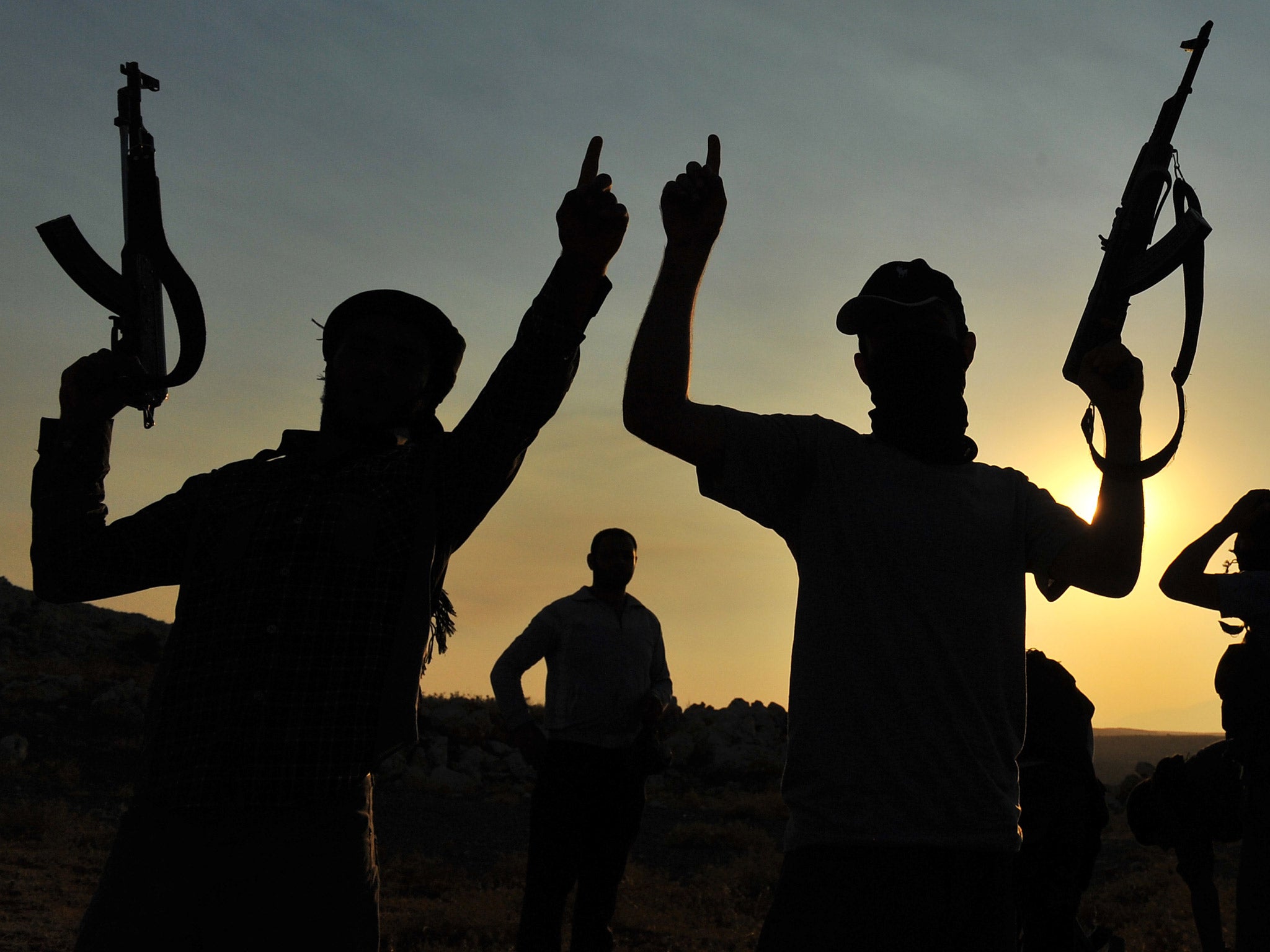Syria crisis: Coalition of powerful rebel groups rejects Western-backed opposition
Blow for Syrian National Coalition which is recognised by more than 100 countries as a legitimate representative of forces fighting Assad regime

Your support helps us to tell the story
From reproductive rights to climate change to Big Tech, The Independent is on the ground when the story is developing. Whether it's investigating the financials of Elon Musk's pro-Trump PAC or producing our latest documentary, 'The A Word', which shines a light on the American women fighting for reproductive rights, we know how important it is to parse out the facts from the messaging.
At such a critical moment in US history, we need reporters on the ground. Your donation allows us to keep sending journalists to speak to both sides of the story.
The Independent is trusted by Americans across the entire political spectrum. And unlike many other quality news outlets, we choose not to lock Americans out of our reporting and analysis with paywalls. We believe quality journalism should be available to everyone, paid for by those who can afford it.
Your support makes all the difference.A coalition of powerful rebel groups in Syria has announced that it does not recognise the Western-backed opposition-in-exile, dealing a crippling blow to the West’s efforts to support moderate rebels fighting to remove President Bashar al-Assad from power.
A statement signed by eleven rebel groups based largely in the north of the country – among them the al-Qa’ida-linked Jabhat al-Nusra – denounced the “unrepresentative” Syrian National Coalition (SNC) and called for the opposition to reorganise under “an Islamic framework based on sharia [Islamic law]”.
It insisted that forces fighting on the ground should be represented by “those who suffered and took part in the sacrifices.”
In what may prove to be a fatal blow for the Istanbul-based National Coalition – which already beset with infighting and allegations of corruption – the new coalition includes a number of rebel groups with which it was previously associated, meaning a depletion of its military as well as political strength.
The three moderate Islamist groups which signed the statement – Liwa al-Tawhid, Liwa al-Islam and Suqur al-Sham – had represented the bulk of the SNC’s presence on the ground in Syria, loosely organised under the umbrella of the Supreme Military Council, according to Charles Lister, an analyst with IHS Jane's Terrorism and Insurgency Centre.
“It is likely that the moderate Islamist coalition has ceased to exist as a single organisation structure,“ he said.
The SNC was formed in November last year and is recognised by more than 100 countries as a legitimate representative of the Syrian opposition.
Rebels on the ground in Syria have often complained that SNC is too far removed from the fighting to be its legitimate representative. The split appears to have been hastened by the SNC’s support for Western intervention in Syria – something opposed by the groups who signed the statement.
The move will reduce the influence of Western countries on the outcome of the conflict. Many, including the US, UK and France, have sought to bolster the SNC with political support in the hope that it would form the basis of a political body to replace the current Syrian government after the fall of Mr Assad.
The SNC was marked out early on in the conflict as the conduit through which any military aid from the West would pass. The depletion of its fighting force is likely to dramatically reduce the chances of military assistance from the US and the UK.
“If this new alliance holds, it will likely prove the most significant turning point in the evolution of Syria’s anti-government insurgency to date,” said Mr Lister.
“Having towed politically pragmatic lines since their emergence onto the scene in Syria, the key Islamist middle-ground players – Liwa al-Tawhid, Liwa al-Islam, and Suqor al-Sham – have finally made clear where their allegiances lie, with huge implications for the moderate opposition.”
The new coalition may also herald the creation of a new fighting force in Syria. Aron Lund, an expert on the Syrian opposition writing at Syria Comment, reported that an influential member of one of the groups involved has hinted at the creation of a “new army.”
Mr Lund said of the new grouping: “already at this stage, it looks – on paper, at least – like the most powerful insurgent alliance in Syria.”
Join our commenting forum
Join thought-provoking conversations, follow other Independent readers and see their replies
Comments